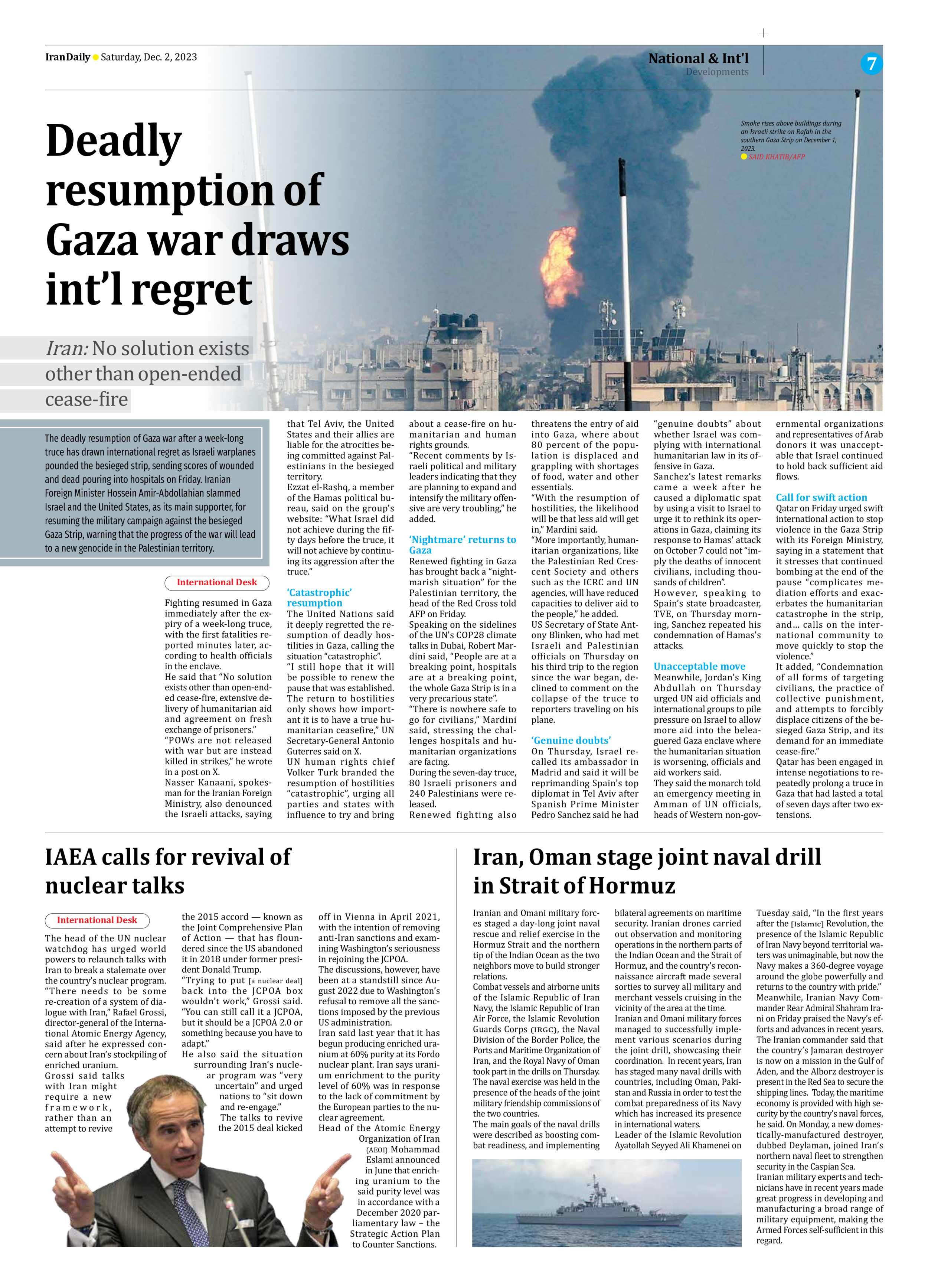
IAEA calls for revival of nuclear talks
The head of the UN nuclear watchdog has urged world powers to relaunch talks with Iran to break a stalemate over the country’s nuclear program.
“There needs to be some re-creation of a system of dialogue with Iran,” Rafael Grossi, director-general of the International Atomic Energy Agency, said after he expressed concern about Iran’s stockpiling of enriched uranium.
Grossi said talks with Iran might require a new framework, rather than an attempt to revive the 2015 accord — known as the Joint Comprehensive Plan of Action — that has floundered since the US abandoned it in 2018 under former president Donald Trump.
“Trying to put [a nuclear deal] back into the JCPOA box wouldn’t work,” Grossi said. “You can still call it a JCPOA, but it should be a JCPOA 2.0 or something because you have to adapt.”
He also said the situation surrounding Iran’s nuclear program was “very uncertain” and urged nations to “sit down and re-engage.”
The talks to revive the 2015 deal kicked off in Vienna in April 2021, with the intention of removing anti-Iran sanctions and examining Washington’s seriousness in rejoining the JCPOA.
The discussions, however, have been at a standstill since August 2022 due to Washington’s refusal to remove all the sanctions imposed by the previous US administration.
Iran said last year that it has begun producing enriched uranium at 60% purity at its Fordo nuclear plant. Iran says uranium enrichment to the purity level of 60% was in response to the lack of commitment by the European parties to the nuclear agreement.
Head of the Atomic Energy Organization of Iran (AEOI) Mohammad Eslami announced in June that enriching uranium to the said purity level was in accordance with a December 2020 parliamentary law – the Strategic Action Plan to Counter Sanctions.







